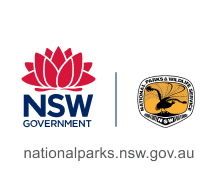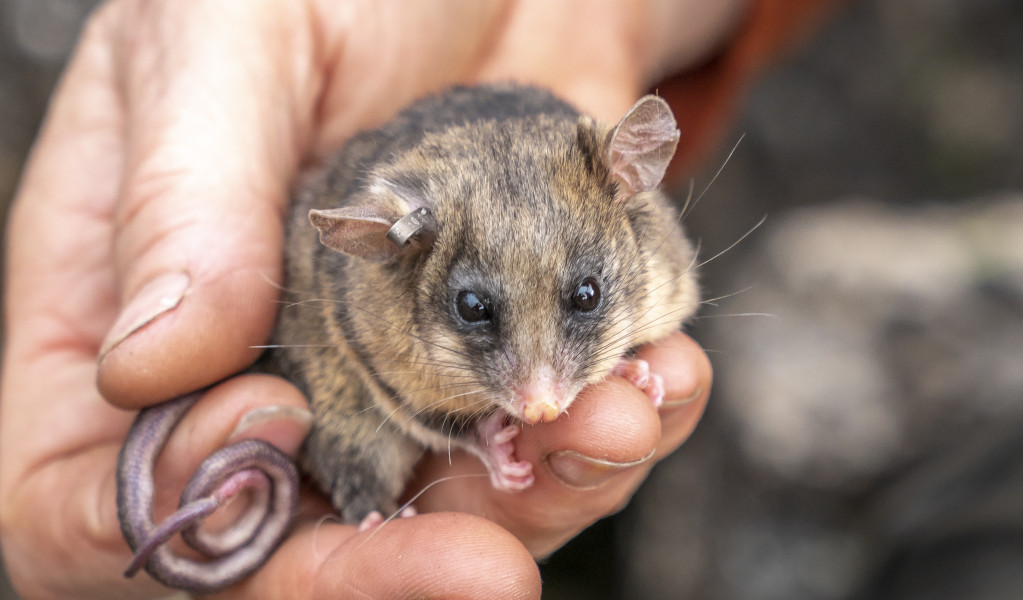School excursion
Mountain pygmy-possum
Thredbo-Perisher area in Kosciuszko National Park
Open, check current alerts
Overview
Mountain pygmy-possum is a Stage 6 (Years 11-12) school excursion that focuses on Geography. Students will hone their fieldwork skills while they explore the habitat of one of Australia’s unique and endangered species: the mountain pygmy-possum.
Read more about Mountain pygmy-possum
This Stage 6 Geography excursion allows students to obtain a solid understanding of the geographical processes that influence the mountain pygmy-possum habitat. Students will gather data and use a variety of fieldwork techniques as they explore the boulder fields around Charlotte Pass Village. They’ll also discuss the impacts and future implications of climate change on the mountain pygmy-possum.
This excursion is designed to support the topics ‘Earth’s natural systems’ and ‘Ecosystems and global diversity’. It also counts towards two hours of fieldwork.
For program outline, safety and practical information about this excursion, see info for teachers
| Stage | Stage 6 (Years 11-12) |
|---|---|
| Learning area | Geography |
| Student outcomes |
GE-11-01. Examines places, environments and natural and human phenomena, for their characteristics, spatial patterns, interactions and changes over time GE-11-02. Explains geographical processes and influences, at a range of scales, that form and transform places and environments GE-11-07. Applies geographical inquiry skills and tools, including spatial technologies, fieldwork and ethical practices, to investigate places and environments GE-12-01. Analyses rural and urban places, ecosystems, global biodiversity and economic activity, for their characteristics, spatial patterns, interactions, and nature and extent of change over time GE-12-02. Analyses geographical processes and influences, at a range of scales, that form and transform places and environments GE-12-07. Selects and applies geographical inquiry skills and tools, including spatial technologies, fieldwork and ethical practices, to investigate places and environments |
| Objectives |
Students will:
|
Excursion details
- When
- Weekdays November to April.
- Availability
- Guided. Available on request.
- Duration
- 2hrs
- Grading
- Medium. Guided tour and activities on boulder fields and along an unsealed path.
- Price
- $15 per student. Minimum $300 per group up to 20 students.
- Entry fees
-
Park Use Fee applies for the hours you are not undertaking Kosciuszko Education Centre programs.
- Accessibility
- No wheelchair access
- Meeting point
- Charlotte Pass Village carpark
- Equipment
provided - Yes
- Booking
- If you would like to organise a NPWS school excursion please get in touch with local staff or use the 'Enquire' link for the online form.
Local alerts
For the latest updates on fires, closures and other alerts in this area, see https://www.nationalparks.nsw.gov.au/education/stage-6-geography-mountain-pygmy-possum-kosciuszko-national-park/local-alerts
Operated by
- School excursion inquiries - Kosciuszko Education Centre
- 02 6451 3700
- kosci.education@environment.nsw.gov.au
Park info
- in the Thredbo-Perisher area of Kosciuszko National Park in the Snowy Mountains region
- The Thredbo-Perisher area is open all year, but some roads and trails may close due to weather conditions or park management issues. Kosciuszko Road is closed between Perisher and Charlotte Pass in winter (June to October long weekends).
-
Park entry fees apply on Alpine Way and Kosciuszko Road
Winter (June to October long weekends): $29 per vehicle per day (24hrs from purchase); motorcycles $12; bus passengers $11.45 per adult, $3.60 per child per day. Find out more about the winter entry surcharge.
Rest of Year: $17 per vehicle per day (24hrs); motorcycles $7; bus passengers $6.60 per adult, $2.20 per child per day.
Passes: Day passes, multi-day passes and annual All Parks Pass available from NPWS visitor centres, local agents and operating vehicle entry stations. Single and Multi-Day passes are also available via the Park'nPay app. Short Breaks Pass: $68 for 5 days park entry at price of 4 days (not valid winter).
Read our Annual Pass FAQs for information.
Buy annual pass.
Info for teachers
All the practical information you need to know about Mountain pygmy-possum.
Program outline
- Welcome, acknowledgement of Country and safety briefing
- Explore the spatial dimensions of the area and boulder fields
- Use fieldwork equipment to measure abiotic conditions
- Observe the relationships between boulders, mountain pygmy-possums and seasonal changes
- Share local rangers’ experiences of researching mountain pygmy-possums to understand and protect them
- Discuss human impacts and management strategies
- Analyse geographical data
Getting there and parking
Charlotte Pass Village is in the Perisher area of Kosciuszko National Park. To get there from Jindabyne:
- Leave Jindabyne on Kosciuszko Road and follow for around 33km to Perisher Valley
- Charlotte Pass is just 8km beyond Perisher on Kosciuszko Road
Parking
Carpark is available in summer only.
What to bring
Please wear long pants, closed comfortable shoes and bring a hat and sunscreen. Be ready for all weather conditions with a jumper and raincoat. And remember to bring food and any necessary medications.
A backpack is essential for carrying all essential clothing – beanie, extra jumper and wet weather gear; as well as water bottle, clip board, pens and pencils.
It’s a good idea to pack your belongings in a backpack rather than a plastic bag because we have some curious birds who may try to break in and share your lunch with you.
Maps and downloads
Risk assessment and risk benefits
Our rangers and guides have the technical skill and experience to assess the risks and the benefits of a variety of activities delivered as part of our learning programs.
We believe in including opportunities that allow students to learn and experience for themselves through exploration in the natural environment.
Please make your own risk assessment based on the information provided. Detailed potential risks and controls are provided for the site to assist teachers in risk management planning. Teachers and carers should be aware of, and consider the needs, abilities and medical conditions of students when visiting this site. The supervision of students remains the responsibility of the teacher. The school must ensure an adequate number of adult supervisors are present.
Accessibility
Disability access level - no wheelchair access
Not wheelchair-accessible.

